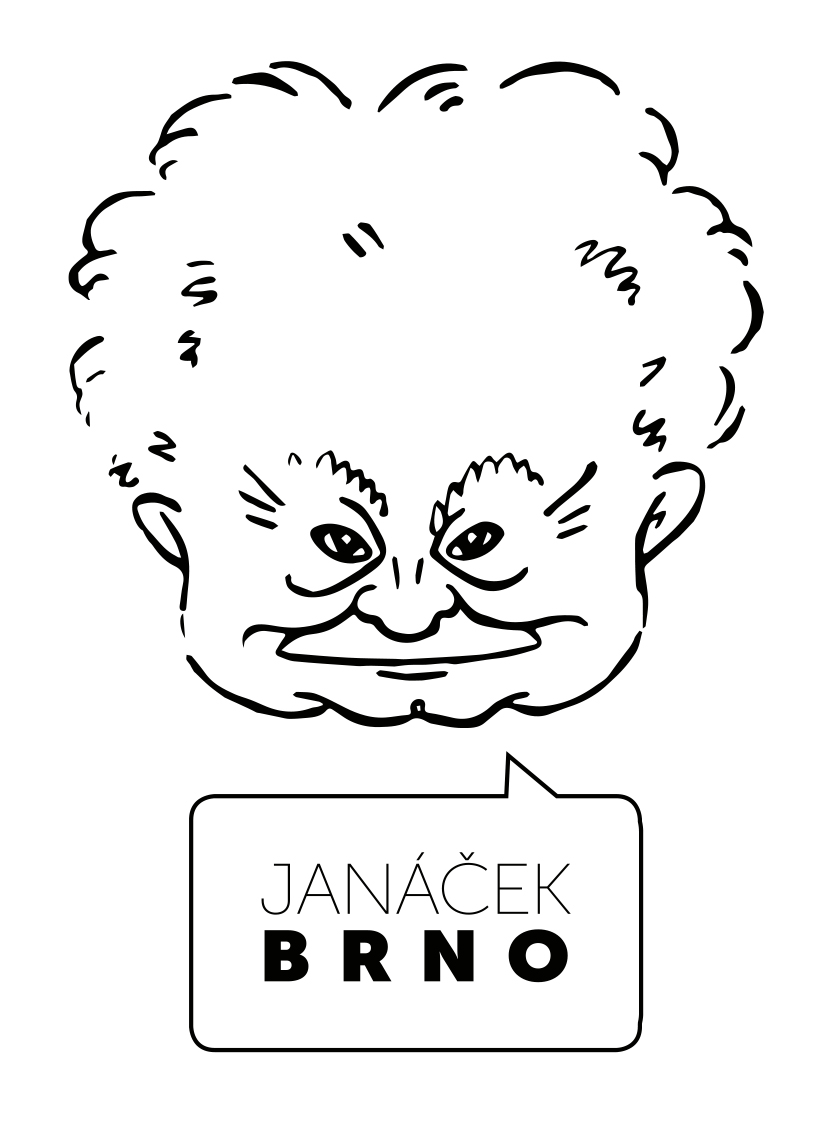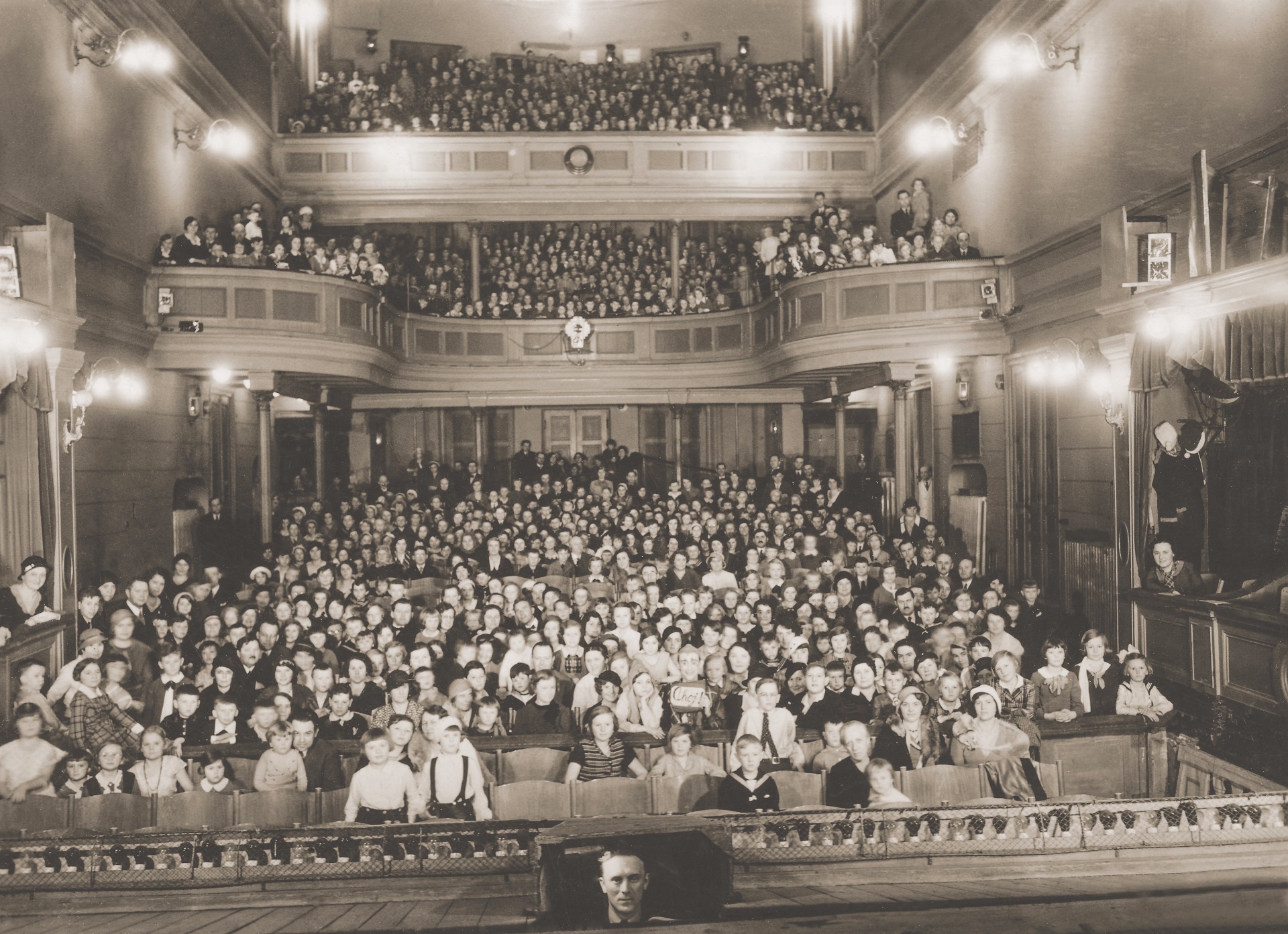INSTITUTIONS

Brno Philharmonic
There was no professional Czech symphony orchestra in Brno during Janáček's lifetime. Czech concert life was mainly organised by the Philharmonic Society of the Brno Beseda. The orchestra for their concerts consisted of volunteers and members of military music or guest orchestras such as the Czech Philharmonic were invited. In 1898 Janáček co-founded the short-lived Czech National Orchestra. Later on, the orchestra of the Brno National Theatre took up the role, to a degree, of a symphony orchestra. On several occasions Janáček brought attention to the need for a professional symphonic body. The Brno Philharmonic was established in 1956 and performing works by Janáček remains one of its core activities to this day. After many years performing concerts in the auditorium of the Janáček Theatre, it should soon have its own impressive concert hall.


The National Theatre Brno
The Czech theatre's first activities were in the atrium of the Beseda House, and subsequently from 1884 it finally had its own theatre building on Veveří street, which was the result of renovation work to the original restaurant and dance hall. The Cooperative of the Czech National Theatre in Brno was responsible for the running of the theatre, and one of its members was Leoš Janáček. The Cooperative tried unsuccessfully for many years to acquire a new building for the Czech theatre, but following the foundation of an independent Czechoslovakia,Brno's National Theatre was able to move to the former German Municipal Theatre (today's Mahen Theatre) in 1919. It was here in the 1920s that the majority of Janáček's major operas were premiered. A new theatre was not constructed until the 1960s. In 1965 a gala production of The Cunning Little Vixen opened the modernist building of the Janáček Theatre, which is today the home of the opera and ballet ensembles of the National Theatre Brno. Leoš Janáček's works are a permanent and celebrated part of the repertoire.
National Theatre Brno is also the organizer of the Janáček Brno festival.


The Leoš Janáček Foundation
The Leoš Janáček Foundation was established to support, develop and spread the values associated with the legacy of Leoš Janáček. It contributes towards the protection and conservation of Janáček's manuscripts kept at the Moravian Museum Department of the History of Music, it supports the publication of new sheet music for the performance of Janáček's works in exceptional interpretations. The Foundation was established using finance from the profits derived from Janáček's works. As the Janáčeks lost both their children, it was the composer's wish that after the death of his widow, Zdenka Janáčková, the Masaryk University would be the inheritor of the profits from his music. In 1954 the Czech Music Fund took over and in 1991 it founded the Leoš Janáček Foundation under the law and transferred there all financial resources from copyright and the performances of Janáček's works. The foundation is also the owner and administrator of the Leoš Janáček Memorial in Hukvaldy and a longterm lessee of the Leoš Janáček Memorial in Brno, which is administered by the Moravian Museum.


Moravian Museum Dep. of the History of Music and Leoš Janáček Memorial
The Moravian Museum Department of the History of Music is housed in the building of the Chleborád villa, which from 1906 was home to the Organ School and its director, Leoš Janáček. Part of the department's collection consists of an extensive and uniquely complete Janáček archive containing the composer's manuscripts, correspondence, documents and Janáček's library. There is a small house in the garden which was built for the director of the Organ School from 1908 to 1910, and Janáček lived there until the end of his life. Today the house is the Leoš Janáček Memorial with an exhibition about Janáček's life and work, and it also contains original furniture from the composer's study. You can find a virtual tour of Janáček's house here.
In 2017 the Janáček Archive was listed in the UNESCO Memory of the World Register.


The Janáček Academy of Music and
Performing Arts
When Janáček's Organ School was to be transformed into a conservatory in 1918, Janáček suggested building a new educational institution with the characteristic of a university. "Combining the musicology of the university's faculty of arts with a conservatory would give it the importance of an academy." However, the first academy of arts had to wait until 1945 with the establishment of the Academy of Performing Arts in Prague. The Janáček Academy of Music and Performing Arts was founded in Brno two years later, and it was entirely clear that it carried his name both in reference to his genius as a composer, but also to the contribution he had made to Brno's musical education. Today JAMU has two faculties - the music faculty and the theatre faculty. Each year the interpretational Leoš Janáček International Competition is held at the music faculty.



Brno Conservatory
From the 1870s Janáček strived to establish a training institute for future professional musicians. Although a conservatory had already been established in Prague in 1808 (the first in Central Europe), with an adjoining organ school, in Brno there was no possibility to follow such studies. In 1881 Janáček managed to establish the Brno Organ School, which he led as its director until 1919, when it was transformed into a private, and then a year later, the State Music and Drama Conservatory.
At present the Brno Conservatory teaches instrument playing, composition, conducting and singing. The school also provides education in the field of dramatic art.


